PhD students Erin Swansen and Cassie-Kay McQuinn were inducted into AIAA technical committees this year.
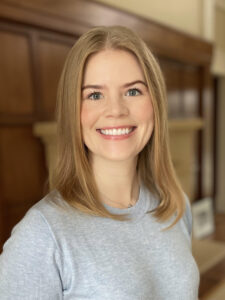 Erin Swansen: Guidance, Navigation, and Control TC
Erin Swansen: Guidance, Navigation, and Control TC
The Guidance, Navigation, and Control Technical Committee (GNCTC) aims to advance the technology and provide forums for the theoretical and practical consideration of techniques, devices and systems for the navigation, guidance and control of flight vehicles and the control of related aerospace systems.
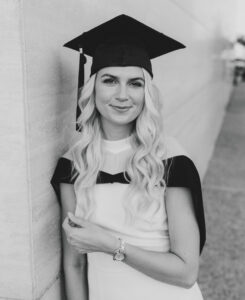 Cassie-Kay McQuinn: Intelligent Systems TC
Cassie-Kay McQuinn: Intelligent Systems TC
The Intelligent Systems Technical Committee (ISTC) is concerned with the application of Intelligent System (IS) technologies and methods to aerospace systems, the verification and validation of these systems, and the education of the AIAA membership in the use of IS technologies in aerospace and other technical disciplines.

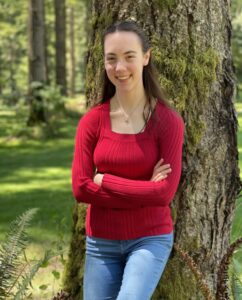 Evelyn Madewell joins VSCL as a Ph.D student in the Aerospace Engineering department. She graduated in the Spring of 2024 from the
Evelyn Madewell joins VSCL as a Ph.D student in the Aerospace Engineering department. She graduated in the Spring of 2024 from the 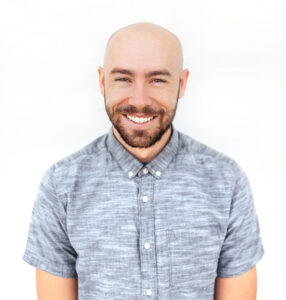 Zach Curtis is graduated from
Zach Curtis is graduated from 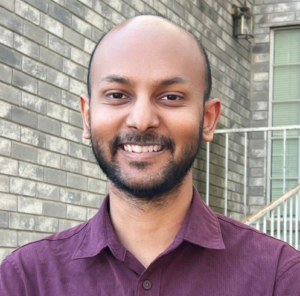 Approaches for teaching learning agents via human demonstrations have been widely studied and successfully applied to multiple domains. However, the majority of imitation learning work utilizes only behavioral information from the demonstrator, i.e. which actions were taken, and ignores other useful information. In particular, eye gaze information can give valuable insight towards where the demonstrator is allocating visual attention, and holds the potential to improve agent performance and generalization. In this work, we propose Gaze Regularized Imitation Learning (GRIL), a novel context-aware, imitation learning architecture that learns concurrently from both human demonstrations and eye gaze to solve tasks where visual attention provides important context. We apply GRIL to a visual navigation task, in which an unmanned quadrotor is trained to search for and navigate to a target vehicle in a photo-realistic simulated environment. We show that GRIL outperforms several state-of-the-art gaze-based imitation learning algorithms, simultaneously learns to predict human visual attention, and generalizes to scenarios not present in the training data.
Approaches for teaching learning agents via human demonstrations have been widely studied and successfully applied to multiple domains. However, the majority of imitation learning work utilizes only behavioral information from the demonstrator, i.e. which actions were taken, and ignores other useful information. In particular, eye gaze information can give valuable insight towards where the demonstrator is allocating visual attention, and holds the potential to improve agent performance and generalization. In this work, we propose Gaze Regularized Imitation Learning (GRIL), a novel context-aware, imitation learning architecture that learns concurrently from both human demonstrations and eye gaze to solve tasks where visual attention provides important context. We apply GRIL to a visual navigation task, in which an unmanned quadrotor is trained to search for and navigate to a target vehicle in a photo-realistic simulated environment. We show that GRIL outperforms several state-of-the-art gaze-based imitation learning algorithms, simultaneously learns to predict human visual attention, and generalizes to scenarios not present in the training data.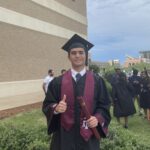

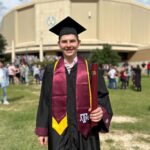
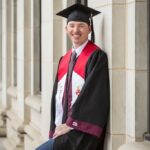
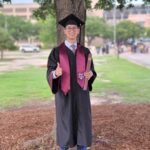
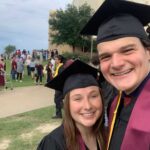
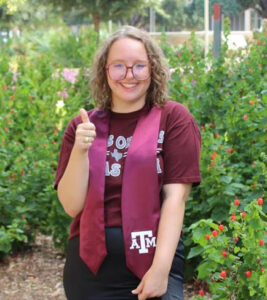 Payton Clem is a Master of Science Student in the Aerospace Engineering department. She is graduating from Texas A&M with her Bachelor of Science in Aerospace Engineering with Minors in Mathematics and Astrophysics in Fall 2023. During her undergrad, she was involved in campus activities like working at the Memorial Student Center to provide support to her fellow Aggies, and was a member of
Payton Clem is a Master of Science Student in the Aerospace Engineering department. She is graduating from Texas A&M with her Bachelor of Science in Aerospace Engineering with Minors in Mathematics and Astrophysics in Fall 2023. During her undergrad, she was involved in campus activities like working at the Memorial Student Center to provide support to her fellow Aggies, and was a member of 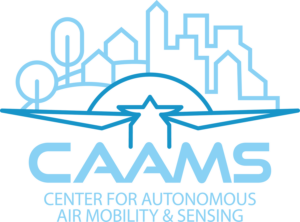
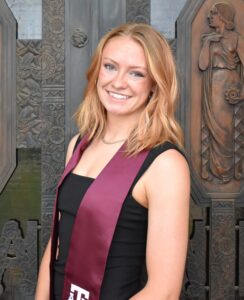 Jillian Bennett is a Masters of Science student in the Aerospace Engineering department. She graduated with her Bachelors of Science in Aerospace Engineering and Minor in Mathematics in Fall 2023. As an undergraduate she interned with Los Alamos National Laboratory and TAMU Material Science and Engineering, working on characterizing impacted materials. Additionally she was the lead ambassador for the Aerospace Ambassador program and a Fish Camp chair. Her work with VSCL will be primarily focused on
Jillian Bennett is a Masters of Science student in the Aerospace Engineering department. She graduated with her Bachelors of Science in Aerospace Engineering and Minor in Mathematics in Fall 2023. As an undergraduate she interned with Los Alamos National Laboratory and TAMU Material Science and Engineering, working on characterizing impacted materials. Additionally she was the lead ambassador for the Aerospace Ambassador program and a Fish Camp chair. Her work with VSCL will be primarily focused on 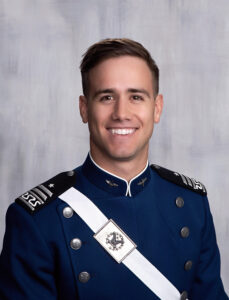 2nd Lieutenant Noah Luna is a Masters of Science student in the Aerospace Engineering Department. He graduated from the United States Air Force Academy with a Bachelors of Science in Aeronautical Engineering and Computer Science. During his undergraduate studies, he performed research on a neural network based flight control system for an ongoing fixed-wing project through the Air Force Research Lab (AFRL). Additionally, he completed an internship and further research with Lockheed Martin Skunk Works as a Software and Flight Test engineer developing nonlinear adaptive flight controls for aerial systems. At VSCL, Noah will be working on
2nd Lieutenant Noah Luna is a Masters of Science student in the Aerospace Engineering Department. He graduated from the United States Air Force Academy with a Bachelors of Science in Aeronautical Engineering and Computer Science. During his undergraduate studies, he performed research on a neural network based flight control system for an ongoing fixed-wing project through the Air Force Research Lab (AFRL). Additionally, he completed an internship and further research with Lockheed Martin Skunk Works as a Software and Flight Test engineer developing nonlinear adaptive flight controls for aerial systems. At VSCL, Noah will be working on 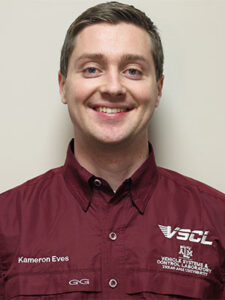
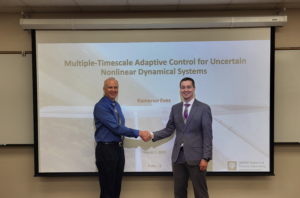 ) successfully defended his Ph.D. dissertation titled “Multiple-Timescale Adaptive Control for Uncertain Nonlinear Dynamical Systems”. Kameron’s dissertation investigated combining nonlinear multiple time-scale controllers that VSCL has been researching for the last 15 years, with adaptive controllers which VSCL has been researching for more than 20 years. Multiple-timescale control has been shown to have difficulty with uncertain systems and adaptive control has been shown to have difficulty with multiple-timescale systems. His dissertation describes a novel control methodology called [K]Control of Adaptive Multiple-timescale Systems (KAMS). KAMS seeks to address systems that simultaneously exhibit uncertain and multiple-timescale behaviors. Unlike traditional multiple-timescale control literature, KAMS uses adaptive control to stabilize the subsystems. The reference models and adapting parameters used in adaptive control significantly complicate the stability analysis. KAMS is a flexible theory and framework and the stability proofs apply to a wide array of adaptive algorithms and multiple-timescale fusion techniques. Additionally, formal and numerical validation of how KAMS can relax the minimum phase assumption for a multitude of common adaptive control methods. KAMS is demonstrated and evaluated on examples consisting of stabilization and attitude control of a quadrotor Unmanned Air System; fuel-efficient orbital transfer maneuvers; and preventing inlet unstart on hypersonic aircraft.
) successfully defended his Ph.D. dissertation titled “Multiple-Timescale Adaptive Control for Uncertain Nonlinear Dynamical Systems”. Kameron’s dissertation investigated combining nonlinear multiple time-scale controllers that VSCL has been researching for the last 15 years, with adaptive controllers which VSCL has been researching for more than 20 years. Multiple-timescale control has been shown to have difficulty with uncertain systems and adaptive control has been shown to have difficulty with multiple-timescale systems. His dissertation describes a novel control methodology called [K]Control of Adaptive Multiple-timescale Systems (KAMS). KAMS seeks to address systems that simultaneously exhibit uncertain and multiple-timescale behaviors. Unlike traditional multiple-timescale control literature, KAMS uses adaptive control to stabilize the subsystems. The reference models and adapting parameters used in adaptive control significantly complicate the stability analysis. KAMS is a flexible theory and framework and the stability proofs apply to a wide array of adaptive algorithms and multiple-timescale fusion techniques. Additionally, formal and numerical validation of how KAMS can relax the minimum phase assumption for a multitude of common adaptive control methods. KAMS is demonstrated and evaluated on examples consisting of stabilization and attitude control of a quadrotor Unmanned Air System; fuel-efficient orbital transfer maneuvers; and preventing inlet unstart on hypersonic aircraft.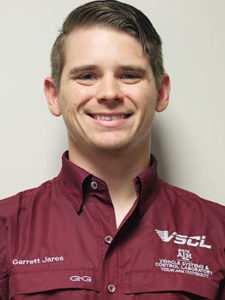 Garrett Jares ’17 will be presenting the paper “Flight Demonstration and Validation of Control Acquisition Autopilot Attack”. The paper investigated a method of cyber attack by which an attacker might take over control of a vehicle. This paper built upon prior work by demonstrating and validating the attack on a DJI F450 quadrotor running the ArduCopter autopilot. The experiments focused on two scenarios. One in which the victim performed regulation while the attacker performed non-zero setpoint control and another in which the victim performed non-zero setpoint control while the attacker performed regulation of the system. The experimental results show how the attack poses a threat to real-world UAS and evaluates its performance under different control scenarios.
Garrett Jares ’17 will be presenting the paper “Flight Demonstration and Validation of Control Acquisition Autopilot Attack”. The paper investigated a method of cyber attack by which an attacker might take over control of a vehicle. This paper built upon prior work by demonstrating and validating the attack on a DJI F450 quadrotor running the ArduCopter autopilot. The experiments focused on two scenarios. One in which the victim performed regulation while the attacker performed non-zero setpoint control and another in which the victim performed non-zero setpoint control while the attacker performed regulation of the system. The experimental results show how the attack poses a threat to real-world UAS and evaluates its performance under different control scenarios.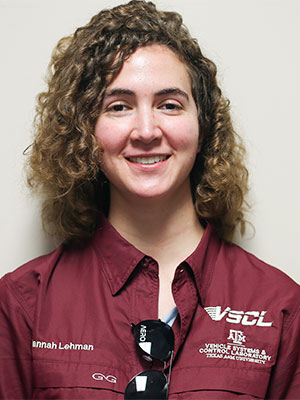
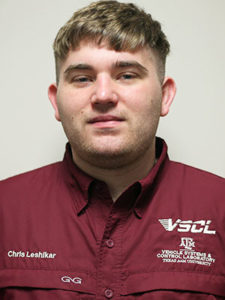 Chris Leshikar ’20 will be presenting the paper “System Identification Flight Testing of Inverted V-Tail small Unmanned Air System”, which addresses challenges in conducting flight testing an inverted V-Tail fixed-winged vehicle and the results obtained from the flight tests. The goal of the flight tests was to obtain longitudinal, lateral/directional and combined longitudinal lateral/directional linear state-space model for the RMRC Anaconda using the Observer\Kalman Identification (OKID) algorithm. Both manual and automated excitation signals were injected into the Anaconda. Parametric sweeps of the excitation signals were performed using the Developmental Flight Test Instrumentation Two (DFTI2) system. The identified longitudinal linear state-space model modelled the longitudinal dynamics well and the identified lateral/directional reasonably well while the identified combined longitudinal lateral/directional model showed decent correlation with the decoupled models.
Chris Leshikar ’20 will be presenting the paper “System Identification Flight Testing of Inverted V-Tail small Unmanned Air System”, which addresses challenges in conducting flight testing an inverted V-Tail fixed-winged vehicle and the results obtained from the flight tests. The goal of the flight tests was to obtain longitudinal, lateral/directional and combined longitudinal lateral/directional linear state-space model for the RMRC Anaconda using the Observer\Kalman Identification (OKID) algorithm. Both manual and automated excitation signals were injected into the Anaconda. Parametric sweeps of the excitation signals were performed using the Developmental Flight Test Instrumentation Two (DFTI2) system. The identified longitudinal linear state-space model modelled the longitudinal dynamics well and the identified lateral/directional reasonably well while the identified combined longitudinal lateral/directional model showed decent correlation with the decoupled models.